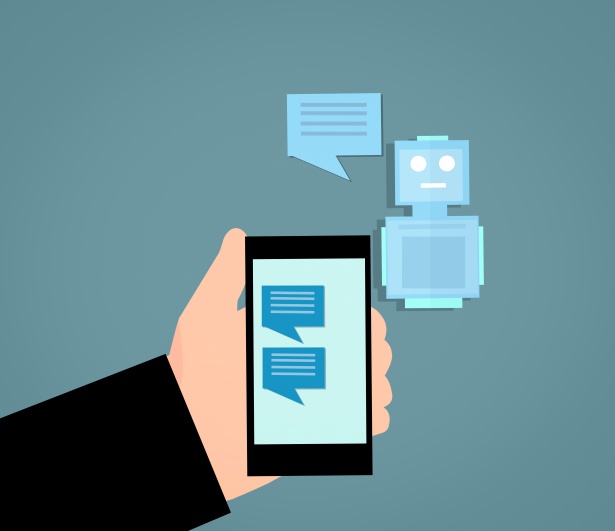The Future of Chatbots from the Experts
By Brent Csutoras
As an avid futurist and marketer who has watched the web, smartphones, and social media change the scope of the internet multiple times in the last decade, I’m always excited by the next wave of marketing and technology innovation carrying the potential to change the way we use the internet as a whole, says Brent Csutoras.
I have remained super excited about voice search, along with voice assistants and even augmented reality. But as exciting as these things are, they are still battling with technological elements that limit them from changing our everyday interaction with the internet.
Chatbots on the other hand, are a very well timed middle ground between automation, AI, and the changing use of the internet, in a way that could make it extremely effective in doing business online and ushering in some of the other future technological advancements we have all been waiting on.
“Gartner predicts that by 2020 people will have more conversations with chatbots than their spouse,” said Christi Olson, head of evangelism for search at Bing, as well as one of the world’s experts on chatbots, voice search, and voice assistants. “The chatbots of the future don’t just respond to questions. They talk. They think. They draw insights from knowledge graphs. They forge emotional relationships with customers.”
What Are Chatbots?
“Chatbots are software that send programmed messages to users in a conversational interface,” said Virginia Nussey, a highly respected chatbot marketer.
She further explains:
“It used to be that only software developers could create chatbots. But in the last year or so, visual drag-and-drop chatbot building platforms have opened the door for all manner of marketers and communications pros to use chatbots. Now it’s easy for anyone to send messages at massive scale through popular mobile chat apps.”
James Melvin, Head of Technology Innovation and Security at Rattlehub Digital, further explains:
“One should not look at a chatbot as a simple messaging service.
Chatbots today are designed to not only perform natural language understanding but are also able to perform cognitive service functions such as:
· Speech to Text
· Computer Vision
· Language Recognition and Translation
· Content Moderation
· Speaker Recognition
· Text Analytics
So How Are Marketers Using Chatbots?
The clearest use of chatbots right now is in customer service and online ordering, where it can automate (and in some cases solve) customer issues or complete orders without human interaction.
Take Dom, the ordering assistance chatbot created by Domino’s Pizza, for instance. Dom allows interaction through texting, voice, and even Facebook Messenger, allowing users an easy to use ordering experience through their mobile phones.
One tactic that is really popular at the moment, is chat blasting, which Larry Kim, arguably one of the most knowledgeable when it comes to this tactic, says is:
“Like an email blast except that send your content through popular messaging platforms like Facebook Messenger and get 60-120x higher user engagement rates.”
A conversion within a chatbot is potentially just as valuable as the same action on a website or in a native app. When this is concept is lived by brands, then chatbots can truly thrive.
Recent post
Archives
- November 2024
- October 2024
- September 2024
- August 2024
- July 2024
- June 2024
- October 2023
- June 2023
- March 2023
- February 2023
- January 2023
- December 2022
- November 2022
- October 2022
- September 2022
- August 2022
- July 2022
- June 2022
- May 2022
- April 2022
- March 2022
- February 2022
- January 2022
- December 2021
- November 2021
- October 2021
- September 2021
- August 2021
- July 2021
- June 2021
- May 2021
- April 2021
- January 2021
- December 2020
- October 2020
- August 2020
- June 2020
- May 2020
- April 2020
- March 2020
- February 2020
- January 2020
- December 2019
- November 2019
- October 2019
- September 2019
- August 2019
- July 2019
- June 2019
- May 2019
- April 2019
- March 2019
- February 2019
- January 2019








 April 17, 2019
April 17, 2019